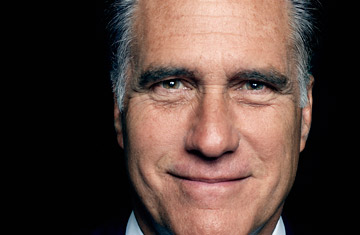
(6 of 11)
More than once, according to Rehnert and Wolpow, someone brought up Colt's and Remington as prospects. Each time the result was the same. "No way we could do deals with rifle manufacturers," Wolpow says. Romney never spoke of his reasons, and he did not use his deciding vote to forbid the transactions directly. "He'd raise rhetorical questions," Wolpow says. "'Do you think our investors would like this? Could there be reputational risks for Bain Capital?' And most of the partners agreed with that."
Lucrative tobacco opportunities came and went as well. RJR Nabisco had a leveraged buyout, tobacco-leaf dealer W.A. Adams changed hands in a private sale, and American Brands sold off its tobacco division. Brown & Williamson gave up most of its discount cigarette brands, and a deal for the Miami premium cigarmaker El Credito went begging until a Swedish firm stepped in. Romney stayed far away.
According to Rehnert, "stuff like tobacco or gambling," along with gun companies, had "a personal yuck factor" at the partners' table. "Do you want to make money doing something that feels gross?" he asks. "There was also how investors feel about things. Do you really want to be doing things that you're not proud to talk to your friends and family about, much less investors? At the end of the day, there are a lot of ways to make money, and there was a culture at the firm that people didn't want to make money off other people's misery."
Most of Romney's business partners did not share his Mormon faith, and those interviewed, on and off the record, said they did not know whether or how religion shaped the ethical lines he drew. Robert Gay, believed to be the only fellow member of Romney's church among the early partners, was quoted in Jeff Benedict's The Mormon Way of Doing Business as saying, "I remember literally kneeling down with Mitt at his home and praying about our firm." Gay declined through an intermediary to be interviewed for this story.
When it came to playing by the rules, from tax and labor law to securities regulation, Romney did not regard the boundaries as an ethical question. Former partners describe him as entirely unsentimental: if the law clearly forbade something, he would not do it, but nearly everything else was fair game. Many businesses run into uncertain boundaries now and then, but in private equity the profits are often centrally dependent on financial engineering that guides transactions through tax loopholes and other seams in the law.
For Romney, aggressive use of those tools was routine, and Bain could afford the best lawyers in town. "I've never seen him break the law," and "there are people in our business who go way more into the gray area," says Wolpow. "I think he believed, and I do believe, that as a businessperson, you have the right to push the tax law into the gray area, so long as you are not fraudulent, and to take the risk that the IRS is going to challenge you. And when they do challenge, you negotiate with them as you would with any other party and then settle the dispute in a reasonable manner." Romney's refusal to release more than two years' personal tax returns may stem in part from the political reaction he expects if the creativity of his accounting becomes fully known.
